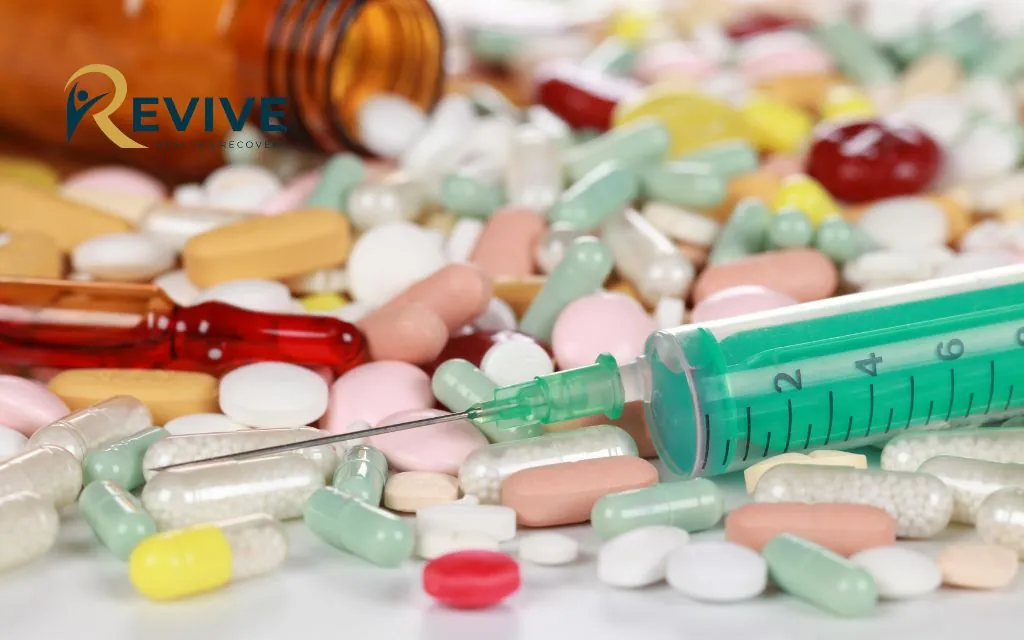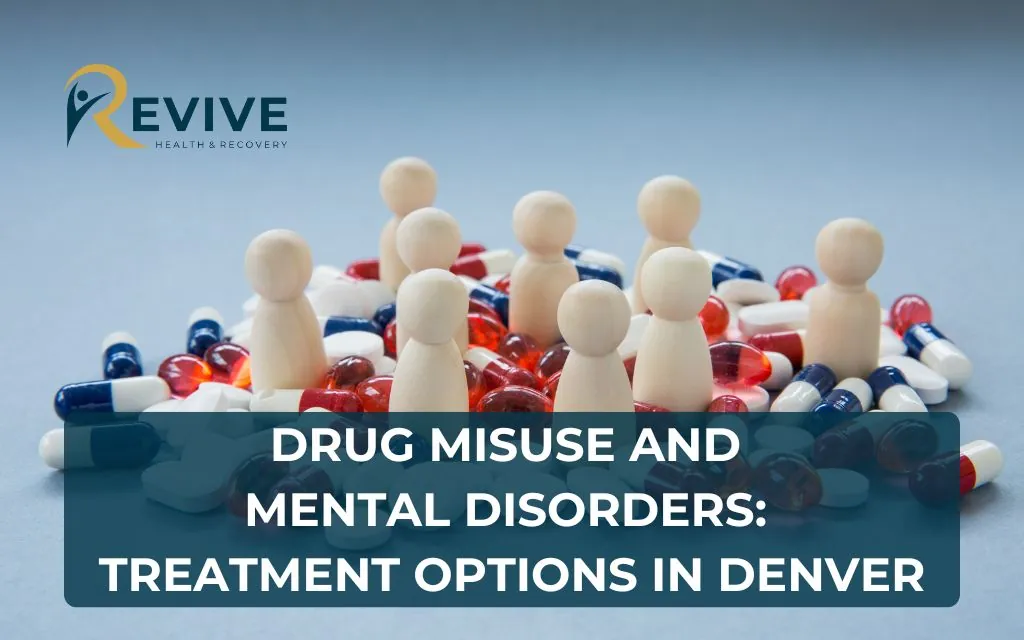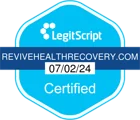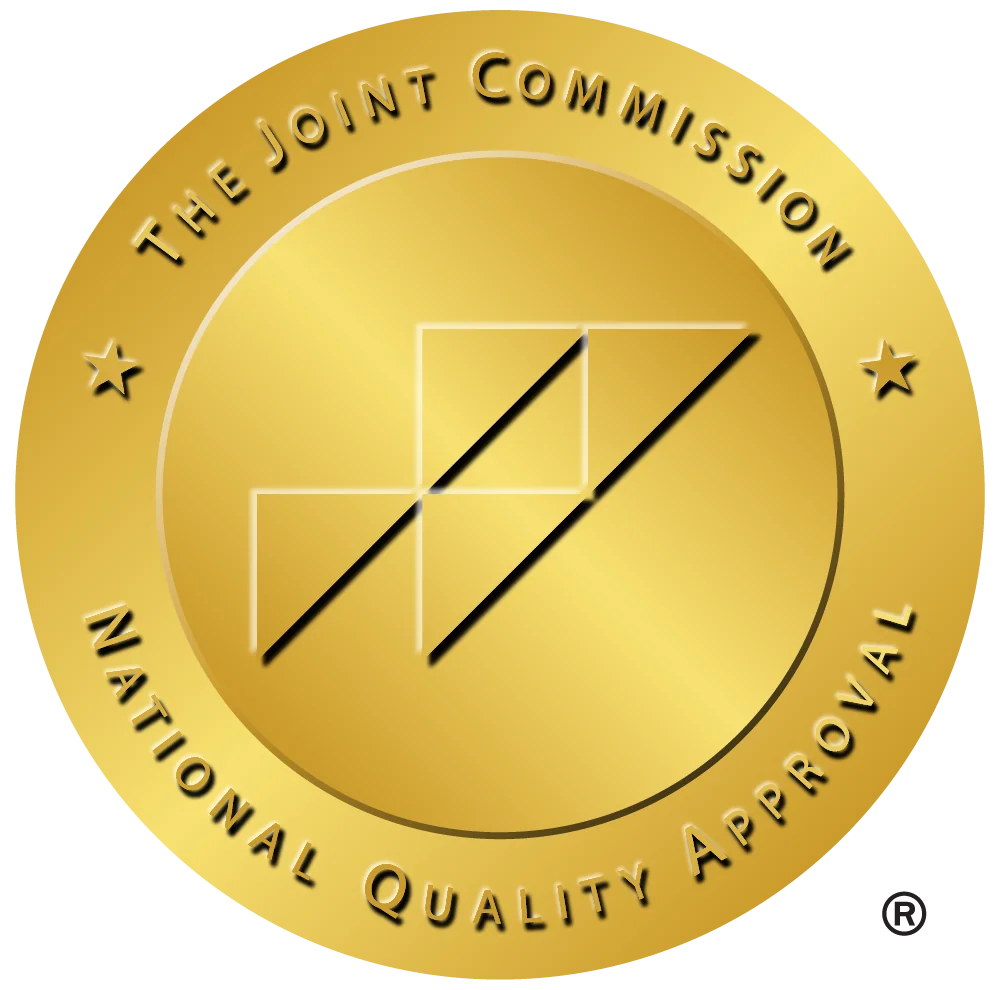Drug misuse and mental disorders are closely linked, often creating a destructive cycle that can be difficult to break without professional help. Many individuals who have double diagnosis struggle with substance abuse and also experience underlying mental health conditions such as depression, anxiety, or bipolar disorder. Left untreated, this combination of drug misuse and mental disorders can lead to severe physical, emotional, and cognitive damage, making recovery even more challenging. As awareness of this dual challenge grows, it has become clear that an integrated treatment approach is essential for those affected.
In Denver, specialized treatment programs are available to help individuals who face these co-occurring conditions. Revive Health Recovery, a leading center in the city, provides comprehensive care for drug misuse and mental disorders, offering a path to healing through evidence-based therapies. By addressing both issues simultaneously, Revive Health Recovery ensures that individuals receive the support they need to achieve lasting recovery and improve their overall quality of life.
Introduction to Drug and Mental Disorders
The intricate relationship between drug misuse and mental disorders is a growing concern in both the medical and mental health fields. Drug misuse often exacerbates mental health issues, while untreated mental disorders can increase the risk of substance abuse, creating a vicious cycle that can be difficult to break. In Denver, this complex connection has led to the rise of comprehensive dual diagnosis treatment programs designed to address both issues simultaneously.
Revive Health Recovery in Denver is at the forefront of these efforts, providing specialized care for individuals struggling with drug misuse and mental disorders. As more research highlights the links between these two conditions, it becomes increasingly essential for those affected to seek professional help early on, preventing long-term damage and improving recovery outcomes.

The Impact of Drug Misuse on Mental Health
Drug misuse significantly impacts mental health, often leading to the development or worsening of mental disorders. Substance abuse can alter brain chemistry, making individuals more prone to anxiety, depression, and psychosis. Additionally, the stigma and social isolation associated with addiction can compound mental health struggles, leading to further substance use as a form of self-medication. In Denver, the growing need for treatment programs addressing both substance abuse and mental health issues has made centers like Revive Health Recovery invaluable.
Understanding Dual Diagnosis: What Does It Mean?
Dual diagnosis refers to the condition in which an individual is simultaneously dealing with both a substance use disorder and a mental health disorder. These co-occurring disorders require a holistic approach to treatment, as addressing one without the other often leads to incomplete recovery. For individuals in Denver seeking treatment for dual diagnosis, Revive Health Recovery offers a unique blend of therapies that treat both aspects of the condition, ensuring comprehensive care.
Treatment Approaches for Drug Misuse and Mental Disorders
Effective treatment for drug misuse and mental health disorders in Denver involves an integrated approach that combines both medical and psychological interventions. A well-rounded program typically includes detoxification, behavioral therapy, medication management, and support groups. Cognitive-behavioral therapy (CBT) and dialectical behavior therapy (DBT) are commonly used to help individuals identify and change negative thought patterns, while medications may be prescribed to manage mental health symptoms or aid in recovery from drug misuse.
Revive Health Recovery: A Leader in Dual Diagnosis Treatment in Denver
Revive Health Recovery stands as a leader in providing dual diagnosis treatment in Denver. The center offers a range of services tailored to the needs of individuals facing both drug misuse and mental health challenges. Their comprehensive care model addresses the root causes of both conditions, fostering long-term recovery. With a focus on individualized care plans, Revive Health Recovery helps clients regain control of their lives by treating the whole person, not just the symptoms.

Benefits of Early Intervention for Dual Diagnosis
Early intervention for dual diagnosis can significantly improve recovery outcomes. Addressing both drug misuse and mental health disorders at the earliest signs can prevent further deterioration of mental and physical health. Early treatment can also reduce the risk of relapse and improve an individual’s ability to function in daily life. For those in Denver, accessing treatment at Revive Health Recovery offers a chance to begin recovery with the support of experienced professionals and evidence-based therapies.
Causes of Drug Misuse and Mental Disorders
Genetic and Biological Factors
Genetic predispositions play a crucial role in the development of both drug misuse and mental disorders. Individuals with a family history of addiction or mental health issues are more likely to struggle with these challenges themselves. Biologically, certain neurochemical imbalances can make an individual more vulnerable to both mental illness and addiction. Understanding the genetic and biological underpinnings of these conditions can guide treatment approaches for co-occurring disorders.
Environmental and Social Influences
Environmental and social factors, such as trauma, stress, and exposure to substance use, are also significant contributors to the development of drug misuse and mental disorders. In Denver, individuals facing high levels of stress, poverty, or social isolation may turn to substances as a way to cope, ultimately leading to addiction and mental health struggles. Effective treatment, such as the services provided by Revive Health Recovery, focuses on addressing these external factors through therapy and support systems.
Causes of Drug Misuse and Mental Disorders
Psychological Factors and Co-occurring Disorders
Psychological factors, including personality traits, unresolved trauma, and existing mental health conditions, can lead to both substance abuse and the development of further mental disorders. Co-occurring disorders often reinforce each other, making recovery more complex. For individuals in Denver struggling with these challenges, seeking comprehensive care that addresses both psychological and physical aspects is essential.
Signs of Drug Misuse and Mental Disorders
Behavioral Signs of Drug Misuse and Mental Health Decline
Behavioral changes are often the first noticeable signs of drug misuse and declining mental health. These can include increased secrecy, neglect of responsibilities, and risky behaviors. Additionally, individuals may exhibit sudden mood swings, withdrawal from social activities, or unusual changes in sleeping and eating habits.
Emotional and Psychological Warning Signs
Emotional and psychological warning signs of co-occurring disorders include feelings of hopelessness, anxiety, irritability, and difficulty concentrating. Individuals struggling with both drug misuse and mental health issues may also experience intense cravings for substances and use drugs as a means of coping with emotional distress.
Exploring the Psychological Effects of Drug Misuse on the Brain
Neurochemical Changes Induced by Drug Misuse
Drug misuse leads to significant changes in the brain’s neurochemistry. Substances like opioids, alcohol, and stimulants alter the brain’s production of dopamine, serotonin, and other neurotransmitters that regulate mood, pleasure, and stress. Over time, these changes can lead to a reduced ability to feel pleasure from everyday activities, contributing to depression and anxiety. Comprehensive care for drug misuse and mental disorders must address these neurochemical changes to ensure lasting recovery.
How Drug Misuse Triggers Mental Health Symptoms
Drug misuse can trigger or exacerbate mental health symptoms by affecting the brain’s communication pathways. For example, prolonged use of stimulants may lead to paranoia, anxiety, or even hallucinations, while alcohol misuse often contributes to depression. Dual diagnosis treatment centers like Revive Health Recovery in Denver offer specialized care to manage these intertwined conditions, using a combination of medication and therapy to restore balance.
Long-Term Consequences of Untreated Drug Misuse and Mental Disorders
The long-term impact of untreated drug misuse and mental disorders can be devastating, not only for individuals but also for their families and communities. Ignoring the symptoms of co-occurring disorders allows both conditions to worsen over time, making recovery more difficult and less likely without professional intervention. While immediate consequences like physical illness or emotional distress are often the focus, the extended effects of untreated dual diagnosis require attention as well.
Physical Health Complications
Untreated drug misuse and mental disorders can lead to severe physical health issues that often go overlooked. Prolonged substance abuse damages critical organs such as the liver, heart, and brain, increasing the risk of life-threatening conditions like liver disease, heart attacks, and strokes. Mental health disorders, especially when untreated, can exacerbate these physical issues. For instance, individuals suffering from chronic depression or anxiety may neglect their physical health by failing to seek medical care or maintain proper nutrition.
Over time, these physical complications can become life-threatening. Individuals in Denver who are dealing with drug misuse and mental health issues are urged to seek comprehensive treatment at centers like Revive Health Recovery to avoid these severe outcomes. Early intervention can prevent irreversible damage to the body and improve overall quality of life.

Impact on Cognitive Function and Decision-Making
One of the more insidious effects of long-term drug misuse combined with mental disorders is the decline in cognitive function. Regular use of substances like opioids, methamphetamines, or alcohol can impair brain function, leading to problems with memory, attention, and decision-making. When coupled with untreated mental health disorders such as bipolar disorder or schizophrenia, this cognitive decline can severely impact an individual’s ability to think clearly or make healthy life choices.
In severe cases, prolonged cognitive decline may result in irreversible brain damage, leaving individuals unable to function independently. This highlights the importance of seeking treatment for both drug misuse and mental disorders as early as possible. Programs like those at Revive Health Recovery in Denver offer tailored therapies that address both the physical and mental aspects of cognitive impairment, helping individuals recover lost function and improve their decision-making abilities.
Conclusion
The relationship between drug misuse and mental disorders is complex and often cyclical, with each condition feeding into the other. In Denver, treatment centers like Revive Health Recovery are leading the way in providing comprehensive care for individuals facing these challenges. Through early intervention, integrated treatment approaches, and a focus on both the mental and physical aspects of recovery, individuals can achieve lasting healing. Seeking help from a specialized program ensures that both drug misuse and mental health disorders are addressed, offering the best chance for a full and lasting recovery.
Related posts:
- Comprehensive Dual Diagnosis Treatment Center: Revive Health Recovery in Denver
- What You Need to Know About Substance Induced Psychosis Recovery
- EMDR for Addiction: A Comprehensive Guide to Healing at Revive Health Recovery in Denver







